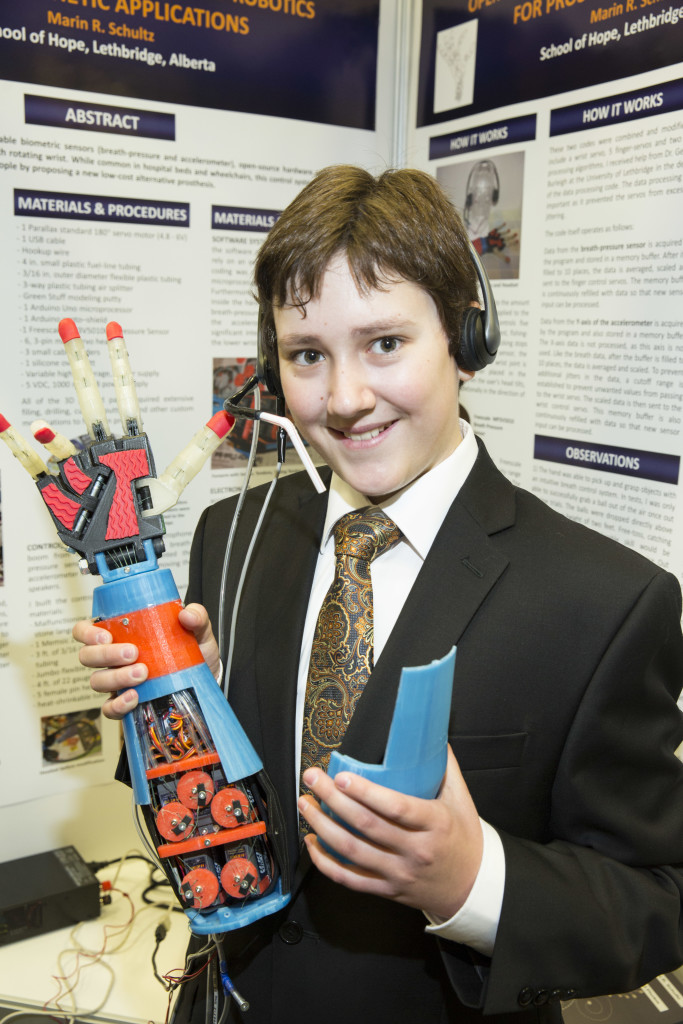Inspired by Albert Einstein, the Canadian Friends of the Hebrew University of Jerusalem (CFHU) is looking for a “genius” idea.
Einstein changed the world with the power of an idea, and with that in mind, CFHU’s third annual Next Einstein competition invites people with enterprising spirit, curiosity, creativity and inventiveness to submit a novel concept to help make the world a better place.
The Next Einstein initiative was established in 2013 by CFHU in conjunction with Hebrew U, which is the custodian of Einstein’s estate.
“The DNA of Hebrew University is curiosity. It’s about exploring. It’s about trying to uncover. We felt we needed to do something to pass on the inspiration of Albert Einstein, so we created a competition that would engage the audience,” said Rami Kleinmann, president and CEO of CFHU.
READ: ISRAEL’S ENERGY INSPIRES YOUNG CANADIAN ENTREPRENEURS
Next Einstein is open to anyone over age 13 with an idea in a category such as medical biotech, education, health and wellness, technology, arts and culture, environment, science and aerospace and political/economic sustainability.
The contest, which closes March 16, expects to receive some 1,000 entries. Participants are vying for a $10,000 prize and a $5,000 Einstein Legacy student scholarship.
Creativity and inspiration have no age boundaries. The winner of the inaugural contest was Charles Rose, a 70-year-old retired science teacher in London, Ont., who developed a method to genetically modify dragonflies to reduce the harmful effects of atmospheric carbon dioxide.
Last year’s Next Einstein prize went to 13-year-old Marin Schultz, who created a low-cost, 3D-printed prosthetic arm to increase mobility for people with disabilities.
The CJN spoke to Schultz, now 15, by phone from his home in Lethbridge, Alta., where he explained his winning idea and the gift of bringing people joy.
“For me, science and designing robotics in particular has always come from a place of seeing a need and trying to figure out how I can help,” he said.

“In 2012 at the Lethbridge Regional Science Fair, I built a voice-controlled robotic rover, which, depending on what was spoken, would move left, right, forwards or backwards. This project sparked my interest in robotic control systems.
“The next year I came back to the science fair with an EEG [electro-encephalography]-controlled rubber robotic hand, which I had hacked from a Jedi Force Trainer toy [providing the EEG headset]. The more the wearer concentrated, the more the hand would close. At the fair, a one-handed boy came up to my project and tried on the headset. When he was able to close the hand just by concentrating, he became very excited and said ‘Dad! I can close the hand!’ From that moment on, I have been inspired to pursue my research in advancing prosthetic technology,” he added.
“One of my goals was to keep my prosthetics below $1,000. This means by using 3D-printing technology, there could be ‘hubs’ set up in developing countries where parts of the prosthetics could be custom 3D-printed on site and built with off-the-shelf parts and sensors.”
READ: ISRAELI-INVENTED SOCKS WARN DIABETICS OF ULCER RISK
The judges – a panel of 11 creative thinkers and innovators from diverse backgrounds, led by Prof. Roger Kornberg, a Nobel Laureate in chemistry from Stanford University – will evaluate the vetted submissions.
“The Next Einstein Competition gives people a creative, scientific mission, asking them to share their understanding, research and vision with others,” Kornberg said.
The judging panel will draw up a shortlist of three finalists, with the general public voting for the winner. Public voting will run April 8 to 13, and the winner will be announced April 18. Ideas are submitted online, vetted and published before being short-listed.
“I think a ‘genius’ doesn’t know the meaning of the word ‘can’t’ and doesn’t know what a ‘limitation’ is. This competition is a beautiful way for anybody from any background to be able to shape the world in a new way,” said panel judge Tori Avey, a food history blogger and PBS columnist, from her office in Los Angeles.






